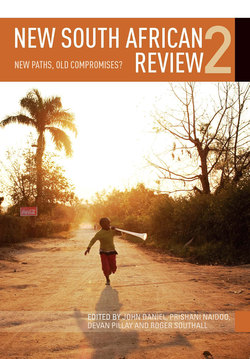Читать книгу New South African Review 2 - Paul Hoffman - Страница 12
На сайте Литреса книга снята с продажи.
RE-MAKING THE (COM)PROMISE OF LIBERATION
ОглавлениеThe struggle against apartheid was significant for its embrace of and experimentation with different political forms – from armed struggle to political theatre to mass marches, demonstrations and stay-aways, and to economic sanctions, and negotiations. This suggests the existence of political imaginaries that were not confined to those circumscribed by the vote, the political party, and the wage. But after apartheid, there seems little left to the imagination of change but electoral politics and the struggle for decent work. While the popular critique of the ANC begins with the adoption of Gear in 1996, missing from these accounts of the transition are the intense struggles that took place within the alliance during the late 1980s and early 1990s over the giving up of armed struggle, the terms of the negotiations with the apartheid state, the protection of the right to private property being included in the constitution, the labour laws (in particular the right to strike versus the right to lock out), and macroeconomic policy generally.
It could, then, be argued that the promise of 1994 was already based on a set of compromises entered into by the ANC that foreclosed the imagination of political possibilities for the transition, limiting it to electoral power and representative democracy, and the promise of full-time, permanent employment. With its adoption of neoliberal policies, each new election has demanded that the party demonstrate its continued commitment to the realisation of ‘the promise of liberation’, each time this promise refigured according to the limitations and possibilities set by the changing needs of the global capitalist system.
The NGP appears, then, as the latest in the ANC government’s attempts at renewing mass confidence in it to continue leading the process towards the realisation of ‘the promise of liberation’ within the context of its unchanged commitments to a neoliberal macroeconomic policy framework. Having been developed and proposed by a new leadership under the Zuma presidency, the NGP enjoys the support and carries the hopes of millions of working-class people who believe that it must have been developed in their best interests by virtue of its custodianship. Since 1994, the imagination of political possibilities has come to be framed by the nature, characteristics, and commitments of the particular leader in power, from Mandela to Mbeki to Zuma. This is evident not just in the form that politics assumes, but also in the manner in which it is interpreted, with recent academic and other public commentary being driven by the need to write up history in the names of its big men. But perhaps, as the experience of Argentina showed in 2001, and the more recent popular uprisings in the Middle East have shown, politics seems always to return to the people in whose name it claims to speak, who demand accountability and the right to participate in decisions that are made about their lives.
